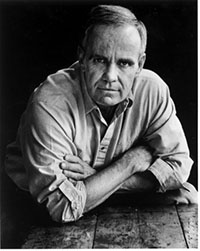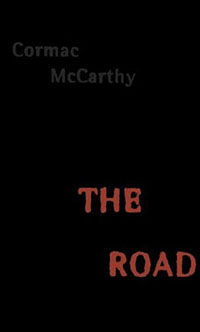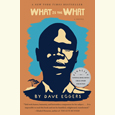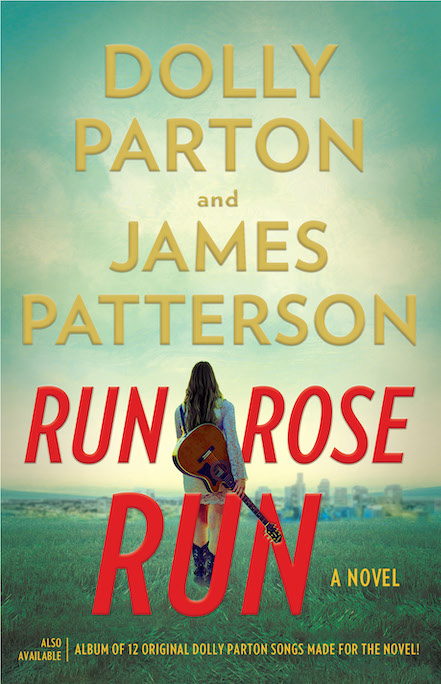Each the Other’s World Entire
Novelist Beverly Lowry looks back at Cormac McCarthy’s Pulitzer Prize-winning novel, The Road, on its tenth anniversary
Literary contests make everybody nervous, and sometimes they go terribly wrong—a forgivable error since there’s no way to judge one book against another, no matter the genre or criteria—but there are exceptions. And when the Pulitzer Prize committee bestowed its 2007 fiction award on The Road, a book that is, I swear, like no other, as perfectly formed as a river stone, well, that was one big exception.
 Not that its author particularly needed the prize, the attention, or the cash award. By September 2006, when The Road was published, Cormac McCarthy had become—against all odds—as famous as a movie star, his handsome, chiseled face utterly recognizable despite his well-known dislike of making public appearances and talking about his writing. I know of one journalist who, denied an interview, made nighttime raids on his garbage, flipping through unpaid bills and food wrappers, looking for clues to his personal life. As if he were Elvis.
Not that its author particularly needed the prize, the attention, or the cash award. By September 2006, when The Road was published, Cormac McCarthy had become—against all odds—as famous as a movie star, his handsome, chiseled face utterly recognizable despite his well-known dislike of making public appearances and talking about his writing. I know of one journalist who, denied an interview, made nighttime raids on his garbage, flipping through unpaid bills and food wrappers, looking for clues to his personal life. As if he were Elvis.
He’d already been awarded a number of generous grants, including a Guggenheim fellowship and a MacArthur “genius” award, and he’d published nine previous novels, the first three set in Tennessee, where he grew up and later lived with his first wife. And while his fifth book, Blood Meridian, sold few copies in its first incarnation, many scholars and readers considered it a literary masterpiece, the authentic, if relentlessly violent, story of the American west, written in the strongest narrative voice and most original prose—some said since Melville; others, Faulkner, Cervantes, O’Connor, even Shakespeare. In 1992, he’d won the National Book Award for the first installment of his Border Trilogy, All the Pretty Horses, which soon became a bestseller and sky-rocketed his notoriety, prompting the reissue of those earlier, long-out-of-print novels. The trilogy continued with The Crossing and Cities of the Plain, both bestsellers, and in 2005, his publisher issued No Country for Old Men, the quick and dirty thriller he’d originally written as a screenplay, later turned into an Academy Award-winning movie directed by the Coen brothers. All of these books featured violence, brutality, mindless killings, a biblical grandeur of language, excellent dialogue, and little or no punctuation. None of which seemed to cause his fans the slightest shiver of dread or avoidance. He was, in a word, golden.
When The Road appeared, its black cover and blood-red lettering issued a kind of warning, like a TV-show parental guideline: unsuitable for the faint of heart. Like the Border Trilogy, it scored big: immediate bestseller lists, thousands sold, reviewed all over the place, won this prize, won another prize, became an Oprah book-club selection, after which McCarthy uncharacteristically agreed to a television interview with the chatty afternoon talk-show host. In 2009 the movie came out. It wasn’t great, but book sales spiked.
 “There was never a person born since Adam who’s been luckier than me,” McCarthy told a Wall Street Journal reporter. “Nothing has happened to me that hasn’t been perfect. And I’m not being facetious.”
“There was never a person born since Adam who’s been luckier than me,” McCarthy told a Wall Street Journal reporter. “Nothing has happened to me that hasn’t been perfect. And I’m not being facetious.”
Since 2006, he’s written plays, screenplays. In time, we’ve been told, we’ll get his next novel, The Passenger. As of 2016 we’re still waiting. Meantime, The Road’s upcoming tenth birthday seems a good time to revisit it.
Dedicated to the author’s son, John Francis McCarthy, who owns the only signed hardback copies in existence, it begins: “When he woke in the woods in the dark and the cold of the night he’d reach out to touch the child sleeping beside him. Nights dark beyond darkness and the days more gray each one than what had come before. Like the onset of some cold glaucoma dimming away the world.”
(Care must be taken when quoting Cormac McCarthy. He bends sentences the way a contortionist curves her spine and from known sources creates his own vocabulary and syntax without ever descending into show-offy obscurity or static exhibitionism, a difficult act to master, deadly to imitate.)
Tagged ubiquitously as “post-apocalyptic,” the novel is set in an unstated year in the future after an unspecified catastrophic event has destroyed all known life on the planet, including birds, plants, people, flowers, animals, and trees. The ground is solid ash, as is the air. The seas are gray; the moon invisible. “By day, the banished sun circles the earth like a grieving mother with a lamp.”
By the third page we know that the man—the “he” of the first sentence—and his approximately ten-year-old son, both unnamed, are alone, walking south down what once was an interstate highway, through snowy mountains toward the sea and what they hope will be a warmer climate: “[T]hey set out along the blacktop in the gunmetal light, shuffling through the ash, each the other’s world entire.”
I find it impossible not to listen to that one again: Each the other’s world entire.
McCarthy offers no explanation for what happened to destroy the world, whether manmade or natural, and when asked, he said he had no opinion on it. The only clue he gives us is that some years back, the clocks stopped in the night at 1:17. There was “a long shear of light and then a series of low concussions.” Nothing else. The earth became ashen. Survivors became savages.
To avoid being raped, murdered, and cannibalized, the boy’s mother has killed herself, which seems a reasonable decision given the circumstances. The father has a gun. Three bullets. He searches for food and cares for the boy. When the boy’s life is threatened, he shoots the attacker in the head. His handiness in building tools and scavenging for useful items is precisely detailed and lovingly wrought. The love of the father for his son moves the narrative. The father has been coughing since the beginning of the journey. He coughs blood drops. We know he will die. He and the boy encounter gruesome scenes of raw savagery. A beheaded baby skewered, roasting over a fire. A group of shackled captives in a cellar, warehoused for their flesh by one of the roving, rampaging gangs.
The boy wants to go back and save the captives; then he gets it.
They’re going eat them, aren’t they?
Yes.
And we couldnt help them because theyd eat us too.
Yes.
And thats why we couldn’t help them.
Yes.
Okay.
A day or so later—time being not as measurable as steps taken, roads walked, distance covered—the boy issues a follow-up question. Would they ever eat anybody? No. Even if they were starving? Of course not. Because they’re the good guys, right? Yes. And they carry the fire? Yes, the father tells him, and the boy says okay.
As always in his books, McCarthy invokes both God and His absence—in fact, the book’s original title was The Grail, which establishes a much more specific, religiously-inclined intention for the journey. And The Road does offer a surprising, somewhat positive ending. Clearly, the boy represents goodness, and if he doesn’t die, goodness survives. He is not just one of the good guys but a kind of messiah. A savior. The one who carries the fire.
McCarthy has said the original idea for this book came to him when he and his son were staying in a motel in El Paso. While the boy slept, he got up and looked out the window and in the dark night had a vision of a ruined, blasted landscape with fires burning around the horizon. Nowhere to go, no place to hide. His son sleeping beside him.
The Road is a great book. Happy tenth.

Beverly Lowry, a Memphis native, is the author of six novels and three works of nonfiction. Her writing has appeared in The New Yorker, The New York Times, Vanity Fair, Granta, and many other publications. Her new work of nonfiction, Who Killed These Girls? Cold Case: The Yogurt Shop Murders will be published by Knopf in October. Lowry lives in Austin, Texas.

This essay is part of the Pulitzer Prize Centennial Campfires Initiative, a joint venture of the Pulitzer Prize board and the Federation of State Humanities Council in celebration of the 2016 centennial of the Prizes. For their generous support of the Campfires Initiative, we thank the Andrew W. Mellon Foundation, the Ford Foundation, Carnegie Corporation of New York, the John S. and James L. Knight Foundation, the Pulitzer Prizes board, and Columbia University.


